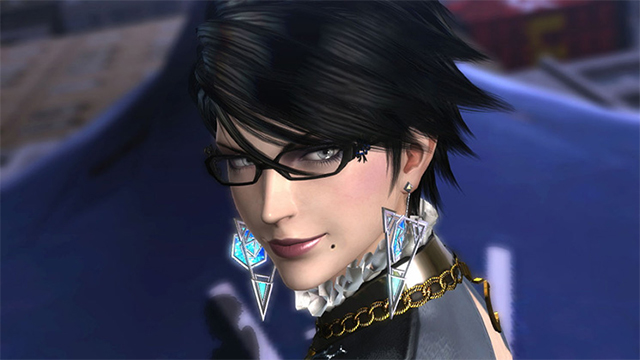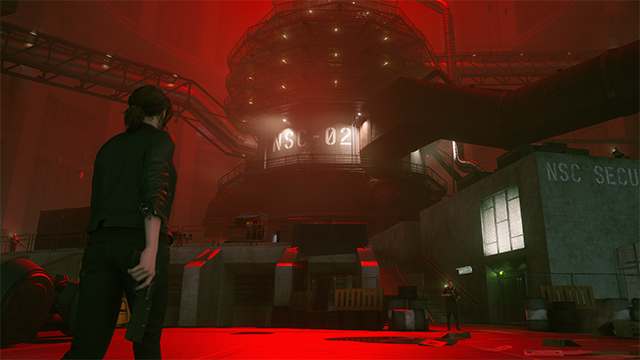Epic has had quite the target on its back since the Epic Store started offered temporary exclusivity on PC to a decent portion of titles. Now, Epic has extended that to full publishing rights, announcing that it is publishing one game each from Remedy, gen Design, and Playdead, makers of Control, The Last Guardian, and Inside, respectively. While this does mean more exclusivity, this is still a great move that players should cherish.
All three of those studios have a few things in common. They all make incredible, thought-provoking games that push the medium forward and, sadly, aren’t the most marketable experiences. It’s not to say that they don’t sell well, but they all create more risky games that likely aren’t what most publishers are prioritizing. What’s good for the industry might not always be good for the bottom line, especially in a capitalistic society where some profit isn’t enough; it must be all of the profit right now.
ALSO: Control Foundation DLC Review | A sturdy foundation, indeed
Those types of games aren’t always the first on a publisher’s mind and probably don’t yield the most security. And avant-garde developers like this trio need that security because of their bold visions and have benefited from it in the past. Playdead depended on Microsoft for marketing, Remedy took Epic’s $10 million PC exclusivity deal, and few non-Sony publishers would have let The Last Guardian’s development go on for so long.
Epic publishing deals give developers much-needed security and power

Security provides developers more freedom and, given the types of games they make, is probably pretty important and rare as many publishers have reputations for being greedy and putting their hands in everything. Studios have talked about the security of Epic’s deals before. Multiple developers have been open about how Epic’s funding has given them more room to breathe or how they don’t have to worry about keeping the lights on.
Publishing is just the natural extension of that on a grander scale. It includes full projects funding, 50/50 profit sharing, and even lets teams keep creative control over their IPs. That is an unprecedented amount of generosity as it is more equal to the developers and doesn’t have a parasitic relationship that many gamers claim to hate. Developers deserve more of a say and money and these terms help balance that scale in the developer’s favor.
More money and control over IPs would let studios open more doors that are currently closed. For example, while Remedy owns the Control IP, they don’t own the publishing rights; 505 Games does. Any Control sequel would have go through 505 first. Remedy only recently got the publishing rights for Alan Wake and partly why we didn’t see an Alan Wake 2. It’s just a big headache that gives publishers all the power and limits what developers can do. Epic’s deal takes that into consideration and came to fruition because of the company’s long history being a developer, according to Founder and CEO of Epic Games Tim Sweeney.
“We’re building the publishing model we always wanted for ourselves when we worked with publishers,” he said with the announcement.
That perspective is important because it’s something publishers like EA, Take-Two, and Activision don’t have and it shows. It’s even possible, yet unlikely, that Epic gets other publishers to loosen up a bit. Epic has done this with its store, as it in addition to exclusives, it also offers developers a bigger cut of sales (Epic takes 12% and Valve takes 20% to 30%). Valve’s Gabe Newell even said Epic keeps them honest when referring to the Epic Store and how it affects Steam. Whether or not the needle moves, someone needs to try to move it and Epic is moving it toward developers.
Exclusive or non-existent

Of course, these deals almost ensure some sort of exclusivity. It’s probable that all of these titles won’t hit consoles or other PC launchers until after they first come out, which is the big sticking point for many. Not being able to play games how you want can be rather frustrating.
However, it’s better than not being able to play them at all. Given the struggles that independent developers face, it’s not a given we’d be able to play these games at all or at least in the state they’ll end up releasing in. They could have struck deals that were not as kind or ones that limited the game or studio in some way. It’s a little selfish to wish for a developer to go through more hoops and take additional risks just to be able to play their game exactly how you want.
All of this is reminiscent of the Bayonetta 2 debacle. Sega did not seem keen to publish the sequel and that’s when Nintendo stepped in to publish it. Many probably weren’t thrilled to play Bayonetta 2 on the Wii U especially since it put the series on an entirely different family of platforms (and a weak one, at that). But it’s an excellent game that deserved to come out in some form, which Platinum said would not have been possible without Nintendo.
Epic is trying to do the same for more studios. Stepping in and giving developers a better deal is the right move since they get to spend more time developing their games, less time having to worry or tweak it because of overbearing publisher demands, and get more say in what happens. That may mean that they’ll be exclusive (at least temporarily) to a platform or store you probably don’t love, but it’s good for the developers and great for the industry, including you since you get more games with a clearer artistic vision. Innovative teams like Playdead, gen Design, and Remedy deserve such support and when they win, we all do.







